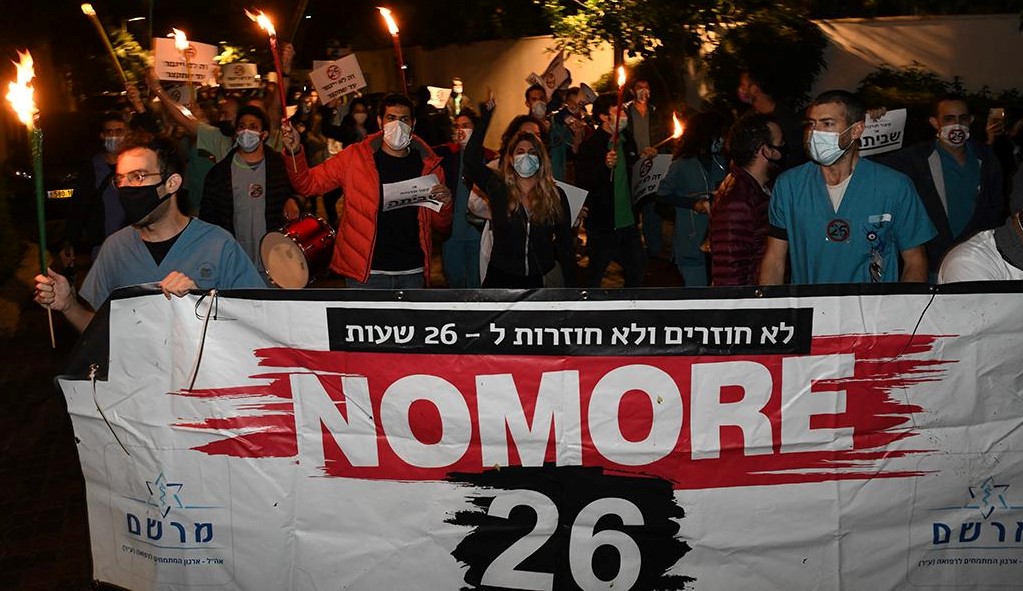13,000 administrative workers and support staff from 30 government hospitals across the country are threatening to strike on next two weeks if no agreement is reached between the Finance Ministry and the Histadrut over 200 positions that are meant to expire this month.
During the height of the COVID-19 pandemic, government hospitals were allowed to recruit 200 necessary workers to help support their establishments. These include cleaning, maintenance and food staff, for example, and also receptionists and other administrative assistants.
“The burden on the existing workers harms the health of the patients being treated in these hospitals,” Eli Badash, head of the union for public hospital workers of the Histadrut, told the Jerusalem Post. “No patient can receive quality and safe medical care without food and cleaning staff. Hospitals cannot operate with working operating rooms, coronavirus wards or emergency departments… The current staff is collapsing from working under such unreasonable conditions.”

Interns and students of medicine protested, last Saturday, June 26, 2021 near the home of the former General Director of the Ministry of Health Minister, Prof. Hezi Levi, demanding that the regime of 26-hour shifts for medical interns not be reinstated. The sign held by protestors reads: “We won’t go back to 26.” Police arrested four demonstrators. (Photo: Mirsham)
Badash said that even with the 200 additional staff, there is a deficit of 1,000 employees that the hospitals require to run in the most optimal way. The union said that it would go on strike beginning July 13 if a solution is not reached to keep the new staff and to improve the conditions of the workers, many of whom are working at more than full-time and seven days a week.
“Hospitals have grown, departments and even whole buildings were added, but the manpower to clean, transport patients, feed workers and patients, and admit patients was not thought of,” Badash said. “Today we say enough!”
Junior Doctors & Medical Students Continue to Protest Conditions
Police arrested four protesters, medical interns and students, when dozens of them gathered near the home of former General Director of the Ministry of Health Minister, Prof. Hezi Levi in Reut on Saturday night, June 26, to demand changes in their work conditions. The protesters chanted “We will not go back to the conditions of slavery!” and “Human work conditions or strike!”
Last year the former Labor, Social Affairs and Social Services Ministry, led by Labor MK Itzik Shmuli, approved a decision to change the work conditions of interns and medical students, primarily prohibiting their being required to work shifts of 26 consecutive hours. That decision was set to lapse on December 14, 2020, meaning the long shifts could be reinstated if the Health Ministry takes no decisive action to eliminate this possibility. In the meantime, the situation remains unchanged.
This is not the first time the issue has been brought up in protests. In May, some 2,500 residents and interns protested in Tel Aviv, demanding shorter shifts. A key demand of the protesters includes their being paid by the hour for hours worked overtime. Dr. Ray Biton, chair of the Residents Organization “Mirsham” (Prescription), said, “We’re doing much more than six rotations in a month, and none of us manages to get two hours of sleep during our rotations.”
Related: Medical Association and Interns Hold a 24-Hour Warning Strike


